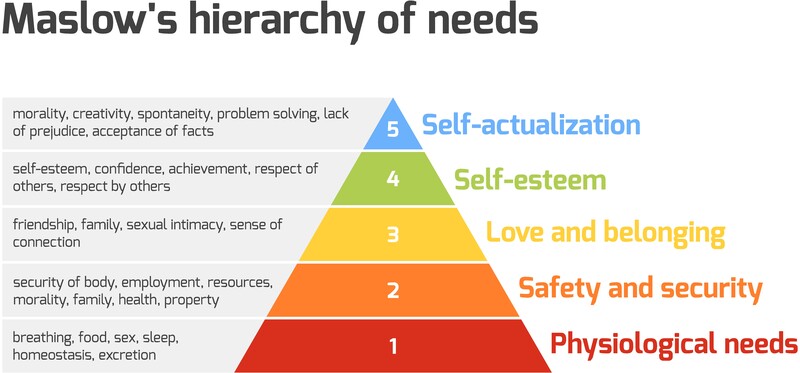Abraham Maslow – the developer of the “hierarchy of needs”, “self-actualization” and “peak experiences” – said that “plateau experiences” were also possible – longer lasting periods where one felt serene. In older age, people often had a shift in life values about what is actually important and what isn’t.
Maslow adopted the term “plateau experience” after his East Indian colleague U. A. Asrani suggested it during a discussion they had.
A plateau experience is a more permanent state of direct experience than peak experiences. Peak experiences being high points in life when people feel in harmony with themselves and their surroundings.
Unlike peak experiences which tend to be fleeting, it can be possible to work towards a more stable and sustained state which Maslow called a plateau experience. It is less intense than a peak experience, but brings the same sort of level of fulfillment.
Long after this death, many psychologists are now discussing his theories on the plateau experience (mostly within the realms of humanistic and transpersonal psychology). Maslow felt that “individuals capable of having transcendent experiences lived potentially fuller and healthier lives than the majority of humanity because [they] were able to transcend everyday frustrations and conflicts and were less driven by neurotic tendencies.”
Do you think you have had a plateau experience? Do you sometimes reassess what you value in life? What do you value most now?
How can you move into a state of plateau experience?
Many people feel that mindfulness can help you to develop this gentle plateau experience. You may like to talk to your counselor about this. Many Ardent Counseling Center therapists are trained in Mindfulness Cognitive Behavior Therapy (CBT).
Shortly before his death, Maslow began developing exercises to help people achieve this state of consciousness. For example, gazing intensely at a tiny flower or at a loved one and imagining “that you [or he/she] is going to die soon.” He felt that such exercises would help you to break the dull, habitual way we relate to the world and help us to see it instead with freshness and delight.

